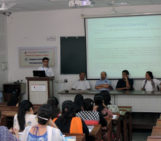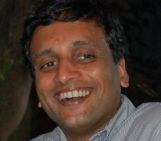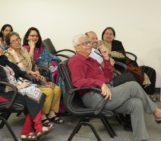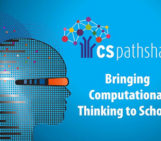The Association for Computing Machinery (ACM) India, in partnership with Tata Consultancy Services, has started a national education initiative, CSpathshala, to promote teaching of computing as a science in schools. CSpathshala has received seed funding from Google.
Computing is ubiquitous and people from every walk of life will need to be familiar with computing in some form or the other. This will lead to huge gap between computing skills availability and demand. To address the skills demand created by the industrial revolution, the Sciences and Mathematics were included in the school curriculum in the early 19th century. Now as we participate in the digital revolution, there is a need to teach our children to be socially responsible digital citizens and train them to be creators and inventors of technology. It is therefore imperative to teach computing which promotes problem solving, computational thinking and critical reasoning skills at par with Mathematics and Sciences.
Yet, there is a widespread lack of knowledge of what constitutes the core of computing: is it just the use of word processors and spread sheets or are there more fundamental principles that underlie this science. CSpathshala, organized a workshop on April 16th at Sumant Moolgaokar Auditorium, Ground Floor, MCCIA, ICC Complex, Senapati Bapat Road, Pune to discuss the importance of computer science in school education. 80 teachers from 38 schools participated in the workshop taking the total participant count to over 100.
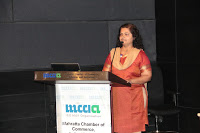
Arati Dixit, Pune University
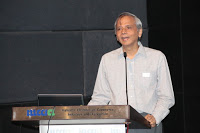
Prof. Abhiram Ranade, IIT Bombay
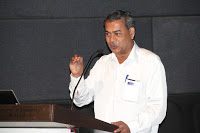
Dr. A. L. Deshmukh
Dr. A. L. Deshmukh, formerly Vice Principal at Apte School, inaugurated the workshop and spoke on the importance of
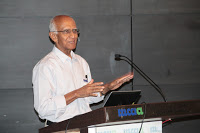
Prof. Mathai Joseph
progressing from technology users to creators of technology. Prof. Abhiram Ranade, IIT Bombay delivered the keynote speech on “Computer Science in The School Curriculum: Whether, Why, How”. He spoke on the need to move from a utilitarian view that current computing education takes to a more liberal view that focuses on the science aspect of computing and makes learning it fun! Prof. Mathai Joseph spoke on “Science education in India: why computer science must be in the core”.
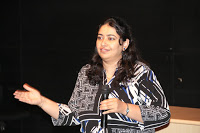
Shraddha Joshi, Persistent Systems Limited
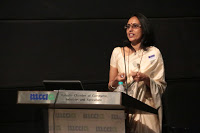
Manisha Girolkar, Dr. Kalmadi Shamarao High School
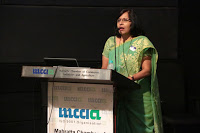
Madhavi Desai, Shri Acharya Vijay Vallabh Schoo
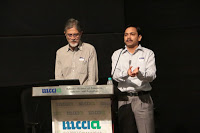
Ritesh Vispute, Sahyadri School
In a teachers experience sharing session, Ms. Shraddha Joshi, Persistent Systems Limited, talked about introducing Scratch to a set of schools and the journey since its inception. Mrs. Manisha Girolkar, Kalmadi High School, shared the challenges and positivity she faced during development of problem solving skills and introducing the Scratch in curriculum. Mrs. Madhavi Desai, Principal, Vijay Vallabh School, spoke about the changes Scratch brought about in her school. She also shared interesting insight into the participation of Schools in an interschool Scratch competition organized by her school. Mr. Ritesh Vispute, Sahayadri School has been using functional programming and shared his experience with the same.
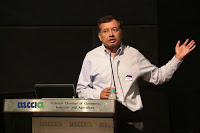
Vipul Shah, Tata Consultancy Services
Vipul Shah, TCS, co-lead CSpathshala, announced the roll-out of pilot project for 20 schools in Pune to teach computing as a science for grades 1-5 from academic year 2016-17. A plan to train teachers from all schools on the new CS curriculum was presented. Nikhi Karkare, Walnut School provided an overview of the new CS curriculum.
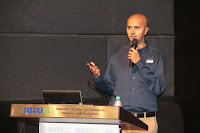
Nikhil Karkare, Walnut School
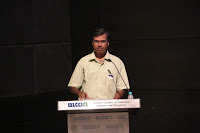
Dr. Anand Paropkari, Persistent Systems Limited
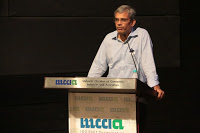
R Venkatesh, Tata Consultancy Services
During the breakout session, Nikhil Karkare provided the teachers a glimpse of detailed lesson plan and activity sheet for networking lesson from grade 4. Dr. Anand Paropkari, Persistent Systems Limited, session sought inputs from teachers on CSpathshala execution plan in a parallel session. Mr. R Venkatesh , TCS, summarized the days events.
The CSpathshala Pune chapter core team comprises Akshat Srivastava, CEO Knowledge Enhance Systems, Arati Dixit, Pune University, Anand Paropkari, PSL, Shekhar Shastrabudhe, ACM India, Madhavi Desai, Vijay Vallabh School, Navin Kabra, CEO Reliscore, Nikhil Karkare, Walnut school, R Venkatesh, TCS, Shraddha Joshi, PSL, Tejaswini Apte, SICSR and Vipul Shah, TCS. We are looking to volunteers to work with ACM India local chapters in taking this initiative forward. If you are interested in contributing, please drop in an email to cspathshala@gmail.com.

